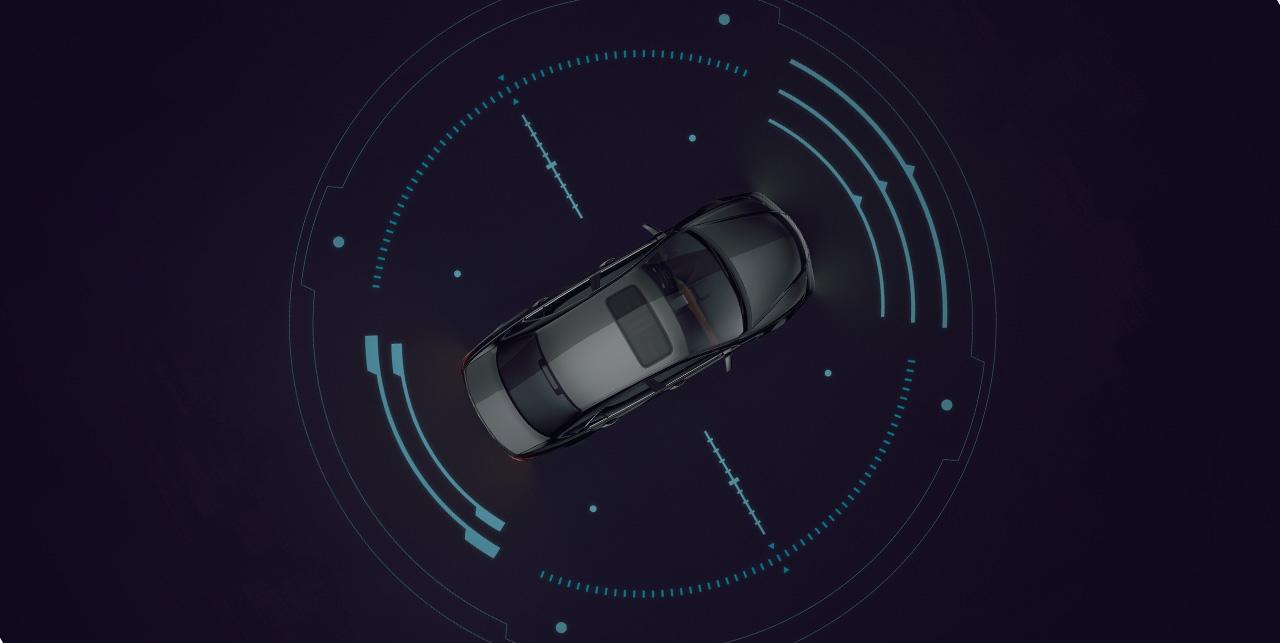Edge-Ready Automotive Testing Systems Built for Real-World Road Challenges
InoNet used Solidigm storage to improve the duration, cost, and accuracy of test drive results


The automotive industry continues to invest heavily in Advanced Driver Assistant Systems (ADAS) and autonomous driving (AD) capabilities to boost overall vehicle safety and efficiency. Today, these safety innovations create data at the edge, inside every test vehicle, long before it ever reaches a data center. Capturing and protecting that torrent of data where it originates is now as important as processing it later. Before any new advanced features or capabilities can be brought to market to protect drivers and reduce accidents, they must be thoroughly vetted and tested to ensure they work reliably. This is where InoNet steps in.
With more than 25 years of experience serving the automotive industry, InoNet knows what it takes to build a computing system that can be used for testing and validating in ADAS/AD applications. The more complex the application (e.g., object detection and smart logging), the more the testing system will have to do for thoroughness and accuracy of results. This takes moving, protecting, and quickly re-using terabytes (TB) of sensor and camera data, in near real-time, to give car manufacturers the validation for as many scenarios and as many environments as possible.
The edge storage challenge inside a test vehicle
When designing and building an in-vehicle testing system for ADAS/AD applications, InoNet has been challenged to implement storage that could meet all the demands. Most triple-level cell (TLC) storage solutions could not handle the high volume and write speeds required to collect the amount of data from all the different cameras and sensors on the car for any duration. In other words, the test car itself has become a rolling edge data center with extreme write needs.
When storage capacity is limited, the length and distance of the test drive are also significantly reduced, necessitating the frequent return to an operations hub to off-load data. This increases the costs of conducting the test and compromises the thoroughness and accuracy of the results by limiting the length and variety of the test drives.
 Figure 1. Environmental constraints at the outermost edge combined with the need for fast write speeds and high-capacity data storage pose extreme challenges for automotive testing systems.
Figure 1. Environmental constraints at the outermost edge combined with the need for fast write speeds and high-capacity data storage pose extreme challenges for automotive testing systems.
To solve these edge hurdles, the storage inside the vehicle must behave like enterprise media while living in a more challenging environment.
InoNet and Solidigm: Edge-scale data logging for automotive AI
InoNet used Solidigm solid state drives (SSDs) to build a high-performant, in-vehicle testing system that doubles as removable edge storage, traveling from test track to lab without a loss of data fidelity. It can log, store, and analyze test drive and simulation data to validate the functionality of ADAS/AD applications critical for safe vehicle operation.
 Figure 2. InoNet chose Solidigm SSDs to deliver the next generation in automotive testing, capable of logging, storing, and processing all the data needed to validate ADAS/AD applications at the edge, inside and outside the vehicle.
Figure 2. InoNet chose Solidigm SSDs to deliver the next generation in automotive testing, capable of logging, storing, and processing all the data needed to validate ADAS/AD applications at the edge, inside and outside the vehicle.
InoNet 2U storage extender for removable edge capture
InoNet recently launched its 2U storage extender for ADAS applications, featuring add-on compatibility and storage capacity up to 240TB (2x Solidigm™ D5-P5336 122TB SSDs). The system is designed specifically for use in data-intensive test environments in the automotive industry, and has write rates up to 26 GB/s.
Designed for smooth in-vehicle use, the InoBay-2U storage extender enables seamless integration into existing test environments and data logger architectures, including those from third-party providers.
 Figure 3. Utilizing industry-leading Solidigm D5-P5336 122TB QLC SSDs, InoNet’s innovative 2U storage extender addresses some of the most pressing challenges for test vehicles by extending capture windows, allowing longer and more varied test drives.
Figure 3. Utilizing industry-leading Solidigm D5-P5336 122TB QLC SSDs, InoNet’s innovative 2U storage extender addresses some of the most pressing challenges for test vehicles by extending capture windows, allowing longer and more varied test drives.
Solidigm high-performance SSDs enabled InoNet to capture reliability reports and carry out extensive testing quickly and efficiently. Even under demanding test conditions involving increased temperatures, shocks, and vibrations, the robust Solidigm SSDs delivered reliable performance. The high storage capacity and increased data density enable more precise and comprehensive recording of driving data per test kilometer.
How Solidigm QLC SSDs unlock true edge performance
1. A small, reliable form factor
As an SSD there are no moving parts, enabling it to maintain operations during the bumps, vibrations (0.6 G (10- 200Hz) vibration), and shocks (5G/ms shock) of test drives. The efficient Solidigm D5-P5336 in a U.2 form factor minimized the real estate, power, and cooling required, enabling the device to perform regardless of swings in temperature and humidity. This lets engineers treat each SSD as a pocket-sized edge node that can be hot-swapped between vehicle and benchtop analysis station.
Solidigm offers a highly reliable SSD. The vehicle is exposed to increased temperature, and stronger shocks and vibration during testing, so a reliable drive with no moving parts is ideal.
2. Low-latency, high write speeds
Solidigm D5-P5336 SSDs fit four-at-a-time in InoNet’s modular QuickTray®-v3, a key component of the solution. Engineers pop the tray out, swap drives, and ingest data in minutes, sending test cars back on the road faster. A four-drive RAID 0 over PCIe 4.0 then delivers the sustained write bandwidth the logger needs.
The InoNet Highspeed Data Logging Package uses powerful Dual Intel® Xeon® processor or AMD® EPYC™ processors, and five NVIDIA® graphics/tensor cards, making it ideal for computationally intensive AI/GPU and sensor fusion applications in the ADAS area.
“InoNet QuickTray® solutions rely on storage that offers the right capacity at the right speed,” says Armin Erich, Head of Engineering at InoNet. “The InoNet solution produces write speeds of up to 26 GBps with capacities up to 240TB (using 1x QuickTray-v3). This balance of capacity and performance can be achieved thanks to Solidigm QLC SSDs. Even under demanding test conditions involving increased temperatures, shocks and vibrations, the robust Solidigm SSDs deliver reliable performance.”
This enables longer test drives without storage changes and reduces downtimes. Thanks to the hot-plug function of the QuickTray-v3s, data can be transferred directly to the ingest station/evaluation stations after the drive without interrupting the system. The integrated data encryption reliably protects sensitive test data both during storage and transfer.
3. High capacity
Solidigm 122TB QLC drives extend edge capture windows because they can store more data in a more cost-effective manner, allowing vehicles to conduct longer, more varied test drives to improve the thoroughness and accuracy of the results. The ability to store 30% more data in the same space as traditional storage solutions makes a positive difference in the data per km that can be collected in a test drive.
4. Thermal performance
Another aspect of the Car HPC Mayflower® -B17 LiQuid for cooling vehicle HPCs is the water-cooling solution which significantly enhances server performance by providing highly effective cooling for the CPU and GPUs. Edge locations like a trunk or rear cabin see wide temperature swings. Liquid cooling consistently dissipates a stream of the heat generated to avoid throttling and improve the server performance.
5. A future-proofed solution
The use of open, non-volatile memory express (NVMe) architecture in a QuickTray® keeps the edge infrastructure and software stack friendly to meet the needs of autonomous vehicle logging today and in the future as data demands increase.
Customer benefit
The InoNet solution tackles major hurdles in gathering test data. One leading manufacturer needed to manage hundreds of thousands of testing hours efficiently, despite constrained resources and massive data volumes. Conventional storage systems couldn’t meet these demands. The storage extension is already being deployed successfully and supports test engineers with reliable data acquisition, fast transfer, and intuitive handling – from the vehicle to the data lake.
What’s next?
Solidigm products’ edge-class capacity, performance, and resilience now enable InoNet to extend beyond logging into real-time AI inference and training at the vehicle edge.
For more information on how Solidigm can provide customized data storage solutions to support your cutting-edge technology requirements, please visit the Solidigm D5-P5336 product description page. Discover how Solidigm brings enterprise flash to the edge.
Disclaimers
Nothing herein is intended to create any express or implied warranty, including without limitation, the implied warranties of merchantability, fitness for a particular purpose, and non-infringement, or any warranty arising from course of performance, course of dealing, or usage in trade.
The products described in this document may contain design defects or errors known as “sightings,” which may cause the product to deviate from published specifications. Current characterized sightings are available on request.
Solidigm does not control or audit third-party data. You should consult other sources to evaluate accuracy.
Contact your Solidigm representative or your distributor to obtain the latest specifications before placing your product order.
SOLIDIGM and the Solidigm “S” logo are trademarks of SK hynix NAND Product Solutions Corp. (d/b/a Solidigm), registered in the United States, People’s Republic of China, Japan, Singapore, the European Union, the United Kingdom, Mexico, and other countries.



